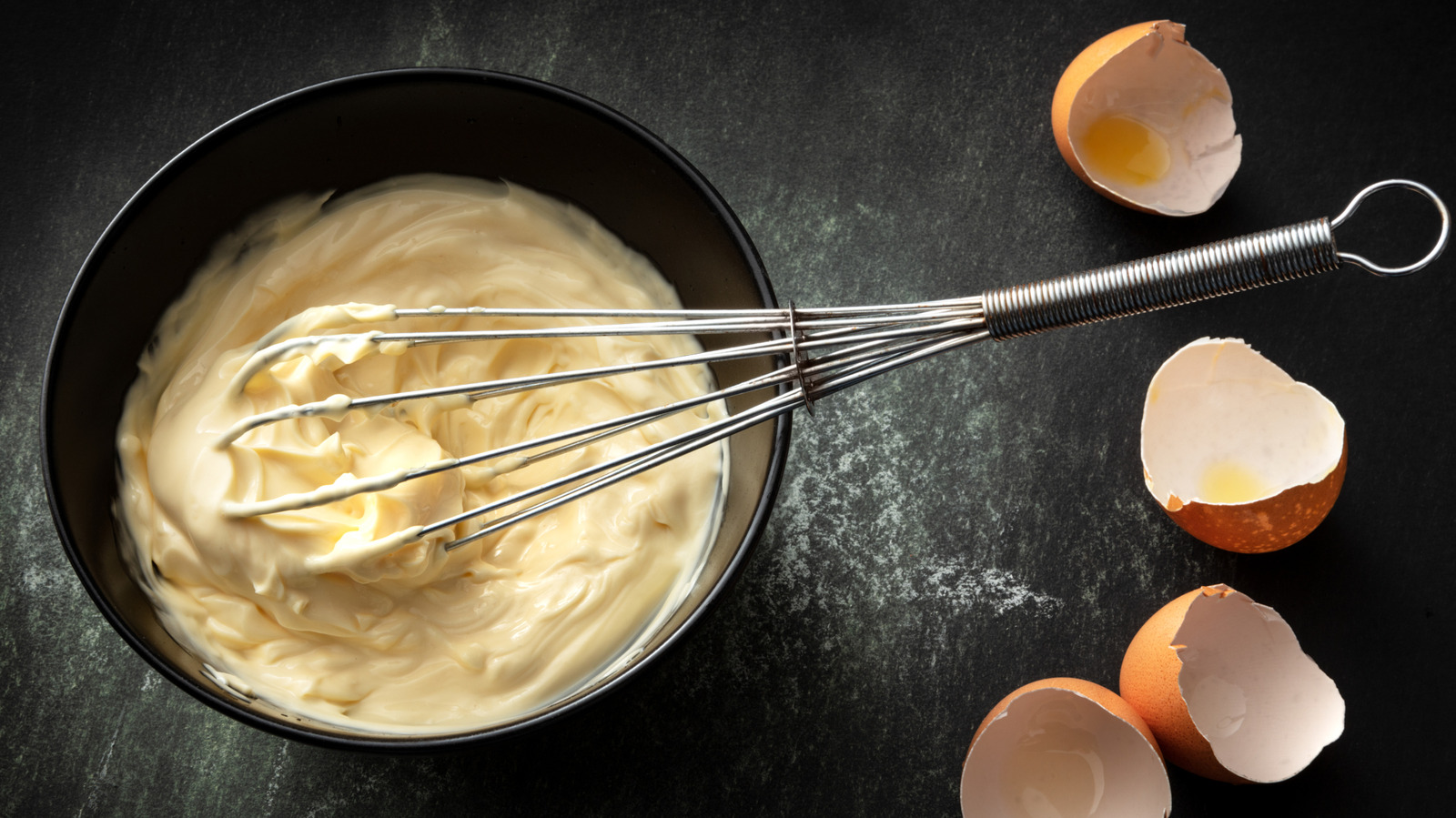
"Creamy, tangy, and full of savory flavor, mayonnaise can be made at home in minutes with only a few ingredients. Just throw in a pasteurized egg (eggs that are treated with just enough heat to get rid of disease-spreading bacteria, but not so much that they end up cooking in the process), along with mustard, an acid such as lemon juice or vinegar, and gradually whisk in a neutral oil and voilà! You'll have thick, velvety homemade mayonnaise."
"According to the USDA, homemade mayo, when made with pasteurized eggs, will stay fresh for up to four days in the refrigerator. However, America's Test Kitchen tested a mayo recipe by pasteurizing the yolks in-house, heating them at 160 degrees and whisking in lemon juice along with water before doing so. They did this using a microwave and a digital thermometer."
"Homemade mayo has the advantage of being free of any additives or preservatives. However, the lack of preservatives to increase its shelf life can also mean that there's a much shorter window to use up homemade mayo than a bottle bought from the store, which can stay fresh for two months in the refrigerator once opened."
Mayonnaise can be made at home quickly using pasteurized eggs, mustard, an acid like lemon juice or vinegar, and a neutral oil. Pasteurized eggs are treated with enough heat to kill disease-causing bacteria without cooking them. The USDA recommends storing homemade mayo made with pasteurized eggs in the refrigerator for up to four days. America's Test Kitchen pasteurized yolks in-house at 160 degrees and reported a version that could be refrigerated for about a month. Homemade mayo lacks preservatives, so it typically has a shorter usable window than store-bought varieties that can last about two months once opened. Refrigeration is the best storage method.
Read at Tasting Table
Unable to calculate read time
Collection
[
|
...
]